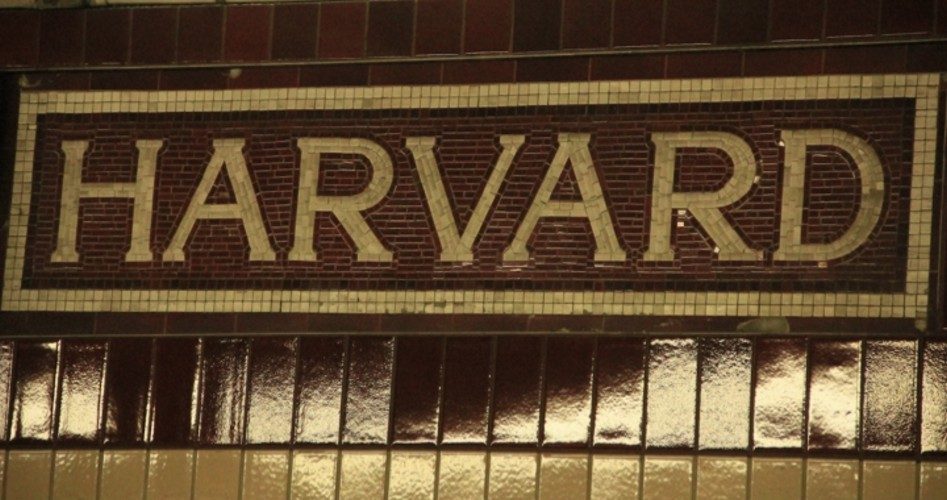
First it was the New York Times claiming that Christians and their “science denialism” were sending us to “coronavirus hell.” Now, perhaps missing the irony that atheistic China visited COVID-19 upon the world, a Harvard professor has blamed Christians for exacerbating the pandemic, calling belief in an afterlife “a malignant delusion” that “devalues actual lives and discourages action that would make them longer, safer, and happier.”
None of this is surprising coming from Harvard University cognitive scientist Steven Pinker, who, according to American Thinker, cites the Bible as an example of “pre-modern cruelty.” Pinker had some help, though, as his comments were inspired by a recent Washington Post column entitled “What’s really behind Republicans wanting a swift reopening? Evangelicals.”
Written by one Gary Abernathy, the article’s thesis is that it isn’t just economic collapse and its resultant consequences, or concerns for constitutional rights, that motivate Republicans to oppose the lockdowns. Rather, the author argues that a major factor is the GOP’s evangelical supporters, who have a “God problem that makes them callous about death,” as American Thinker puts it.
As Abernathy explains, the “National Association of Evangelicals has identified four statements that it says define evangelicals, the last of which is most pertinent for this discussion: ‘Only those who trust in Jesus Christ alone as their Savior receive God’s free gift of eternal salvation.’ This literal belief in eternal salvation — eternal life — helps explain the different reactions to life-threatening events like a coronavirus outbreak.”
“Christian fundamentalism is often fatalistic. As far as many evangelicals are concerned, life passes quickly, suffering is temporary and worrying solves nothing,” Abernathy later writes. “That’s not a view that comports well with long stretches of earthly time spent waiting out business closures or stay-at-home orders. It should be no surprise that a person’s deepest beliefs about the world influence how they [sic] measure the risks they’re willing to take.”
But while Abernathy delivered his analysis soberly, Big Atheism compatriot Pinker was stinging. Reacting in a since-deleted tweet, he wrote (hat tip: American Thinker):
Belief in an afterlife is a malignant delusion, since it devalues actual lives and discourages action that would make them longer, safer, and happier. Exhibit A: What’s really behind Republicans wanting a swift reopening? Evangelicals. https://t.co/ppo2bwiVGn
— Steven Pinker (@sapinker) May 21, 2020
Now, refuting every falsehood and fallacy in Abernathy’s piece would be a bit like a man visiting a psychiatrist and expecting his 22 distinct mental disorders to be remedied with one couch session. Space is limited. But let’s start with a basic point: Research actually informs that, if anything, Christians are more likely than non-believers to abide by governmental social-distancing guidelines.
In other words, Abernathy’s and Pinker’s Big Atheism thesis may have no basis in fact. But then there are the facts that, amusingly, Abernathy relates — as if they’re delusions.
Consider his statement that as “far as many evangelicals are concerned, life passes quickly, suffering is temporary and worrying solves nothing.” This is a bit like saying that as far as evangelicals are concerned, water will wet you, fire will burn, and pain hurts. What radicalism! (No wonder Abernathy’s crew can’t figure out the difference between boys and girls.)
Reality: Life does pass quickly, as any octogenarian will tell you; suffering is temporary, which is why atheists consider assisted suicide a way of escaping it sooner; and worrying in and of itself does solve nothing (though it’s hard to avoid and can have the secondary effect of inspiring action).
In a similar vein, Abernathy not only complains about “biblical literalism,” but cites as a troubling example of it the “certainty that waiting at the end of this terrestrial journey is eternal life in Heaven.”
Is this what we’ve come to, the expectation that Heaven, the afterlife, should be considered by Christians some kind of metaphor (and for what?)? Abernathy’s problem seems to be that Christians actually believe in Christianity.
This is Pinker’s problem, too. Oh, in reality, their thesis that belief in a blissful afterlife can yield blithe disregard for this one may be, within a certain context, a logical analysis. But it’s a superficial analysis. It’s also, as a concern, 800 years too late.
This complaint could perhaps have been rightly made about the medieval Cathars, who, believing that all spirit was good and all matter (e.g., the flesh) evil, fancied that perversion could be good because it didn’t yield life or that suicide could be good because it ended it (sound like anyone you know, Professor Pinker?).
It was believing Christians who opposed Catharism, do note, and today we know these beliefs as part of the “Albigensian heresy” (or leftism).
Big Atheism’s thesis doesn’t align with the facts on the ground today, either. Recent history has revealed atheistic regimes — the Soviets, Khmer Rouge, Communist Chinese, etc. — as the world’s most bloodthirsty, with a Marxist body count of approximately 100 million during the 20th century alone.
Then there are the 42 million unborn babies murdered every year worldwide, a practice opposed by devout Christians but facilitated by the atheistic Left. But correlation doesn’t equal causation, in fairness — but atheistic beliefs do explain causation here.
Pinker et al. ignore what prevents Christians from being Cathars: Not only are they called to cultivate a love for all God’s creation, for this world and this life, but they view man as a divinely created, soul-infused being and are enjoined to protect life in all its stages.
Now consider a corollary of atheism. As I often point out, if we’re merely cosmic-accident-born material beings bereft of souls, we’re then just some pounds of chemicals and water. We’re but an interesting arrangement of atoms — organic robots.
The implications are staggering. After all, what could be wrong with altering an “organic robot’s” software (social engineering) or hardware (genetic engineering)? What could be immoral about terminating an organic robot’s function?
In fact, under atheism, what could be immoral about anything? This reality was expressed by an atheistic man I know of who once said, “Murder’s not wrong; it’s just that society says it is.”
Now, a person of faith could respond, “No, that’s not true because God exists, and divine law dictates homicide’s wrongness.” Of course, that murder-winking man could dispute this theist’s “data” (i.e., that God and His law exist), but he cannot dispute his logic; it’s airtight.
(Note here that logic is not an answer, but simply a method by which answers are found. Thus, the answers will only be as good as the data fed into the system.)
But what can atheists say? Their data is exactly the same as the murder-winking man’s. Under their worldview, society is all there is to say that murder is wrong — because society is all there is to say anything.
So Pinker, Abernathy, and their Big Atheism have it wrong. Christians have every reason to tend to this life as they prepare for the next. Atheism, though, presents a life with no inherent meaning. It gives its adherents no good reason, beyond feelings, to stay in this world or help others do so — or to not remove others from it.
So, godless friends, when tomorrow’s Big Atheism government takes hold, you’d better just hope it fancies you a necessary, or at least pleasing, organic robot.
Photo: Patrickmorrisseyphoto / iStock / Getty Images Plus
Selwyn Duke (@SelwynDuke) has written for The New American for more than a decade. He has also written for The Hill, Observer,The American Conservative, WorldNetDaily, American Thinker, and many other print and online publications. In addition, he has contributed to college textbooks published by Gale-Cengage Learning, has appeared on television, and is a frequent guest on radio.



